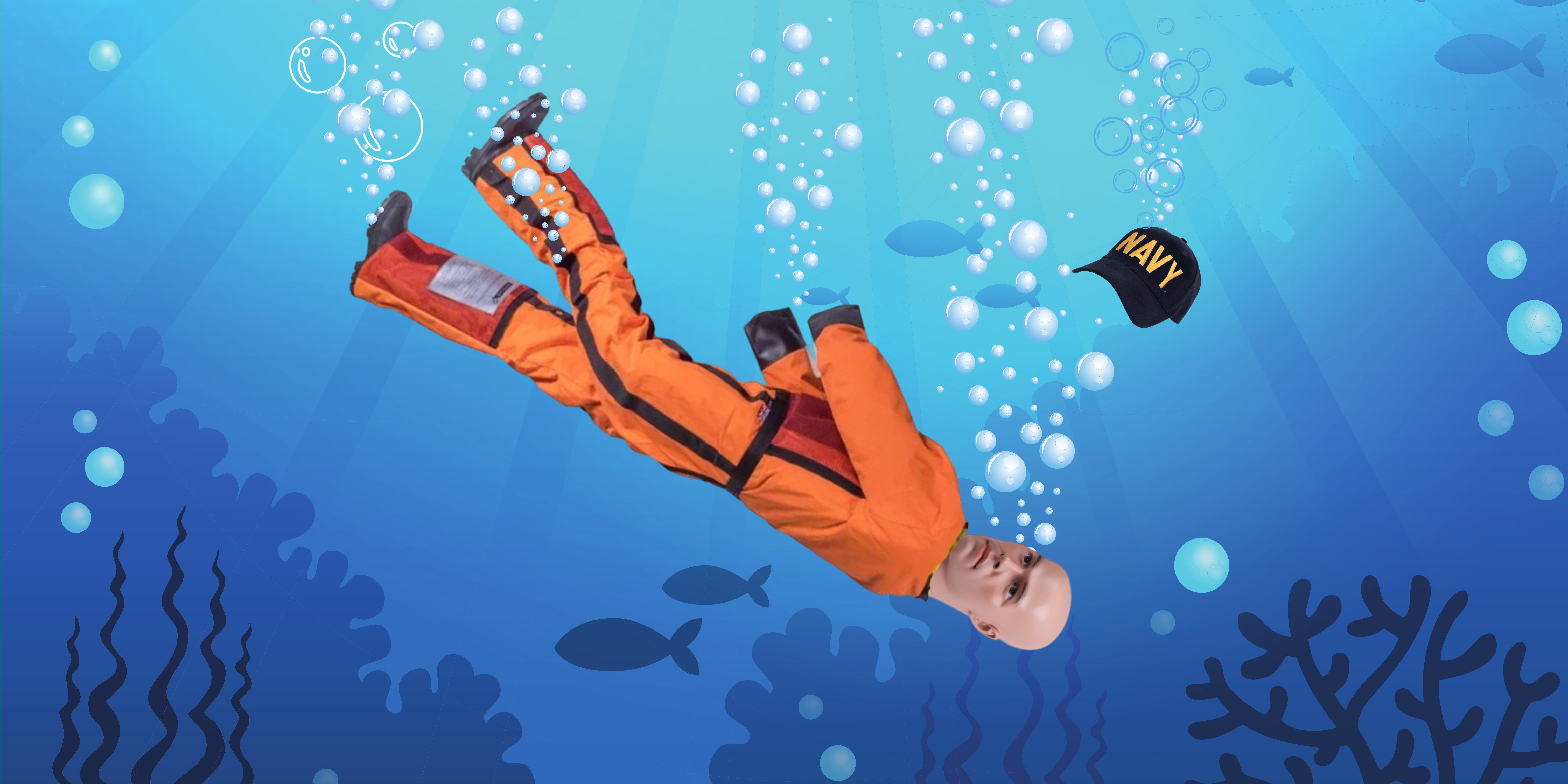Man Overboard – The Adventures of OSCAR

MOB (Man Overboard) – The Adventures of OSCAR
Ships worldwide use flags to communicate important messages to passing ships. The “O” flag is part of the International Code of Signals used for Man-Overboard (MOB) occurrences. A MOB situation is sometimes signaled using the term “Oscar,” which is the NATO phonetic alphabet for “O.” Since Oscar has become synonymous with MOB, US Navy rescue training dummies are called “Oscar.”
“Training boat crews for Person in the Water Recovery requires the use of a life-like dummy (OSCAR). The recommended OSCAR is a stuffed and weighted (approximately 180 lbs. dry) Anti-Exposure Coverall secured at the neck and feet.” – Boat Crew Training Handbook (4-18), US Dept of Homeland Security, United States Coast Guard
Every US Navy ship is equipped with its very own OSCAR, who spends most of his time in a storage locker. However, all ship’s drills need to be performed with some regularity in order to maintain crew readiness. Thus it was that, on a fine sunny day in fairly calm seas, the USS Jason crew was alerted to a MOB (Man Overboard) situation.
OSCAR had fallen (been tossed) overboard as the ship steamed along its course in the open sea.
Once alerted, the crew jumped into action. Those assigned to rescue began their due diligence, donning safety equipment and scanning the water for any sign of OSCAR. At the same time, the ship slowed and began turning back in the direction of where OSCAR had slipped (been heaved) over the rail.
Those of us not assigned to rescue duties nor otherwise occupied came out to watch the heroic rescue of our poor crew member (rescue dummy).
The next couple of hours were spent in a gallant effort to rescue OSCAR (retrieve our assigned property.) Searching, circling, searching some more. To no avail.
Alas, poor OSCAR could not be rescued as he could not be located.
Once we were back underway, there were murmurs of pity for the poor supply petty officer to whom the job of ordering a new OSCAR fell.
But, more than that, the crew had a serious takeaway to hold close for the rest of the 6-month voyage: Whatever happens, do not fall overboard!
Not what I’d call a confidence builder.
Especially for a female ET whose main duty assignment was the transmitter and receiver compartment, which just happened to be snuggled into the middle of a male berthing compartment, which was off limits. So, day-watch or mid-watch, bright light or pitch dark, rain, shine, or stormy seas, I had to make my way along the outside of the ship up onto the open boat deck, open a hatch, and climb down ladder to get to my watch station. All the while, my thoughts would stray to that fateful day when OSCAR, whose trip overboard (heave ho) had been methodically planned, could not be rescued.
Fun times…
Decades later, I still wonder what happened to OSCAR.
While I prefer not to think that poor OSCAR might still be out there, floating alone in the vast ocean, perhaps I worry needlessly. Maybe OSCAR is living his best life, no longer stuffed in a locker and subjected to the whims of sailors, tossed into the brine on everyone’s schedule but his own.
My fiction-writer brain likes to think he got annoyed after being thrown overboard that last time and swam away, determined to enjoy more of the world than a locker on a ship and the few ocean dips (dumps) a year allowed him. Maybe he joined a colony of Mer-people to lead a life beneath the rolling waves.
Sadly, poor OSCAR was likely just a casualty of military training. One that served as a warning to us to go about our duties aboard ship with extra care.
Want More Like This?
To Read More About Sharon’s Time in the Navy Click Here


